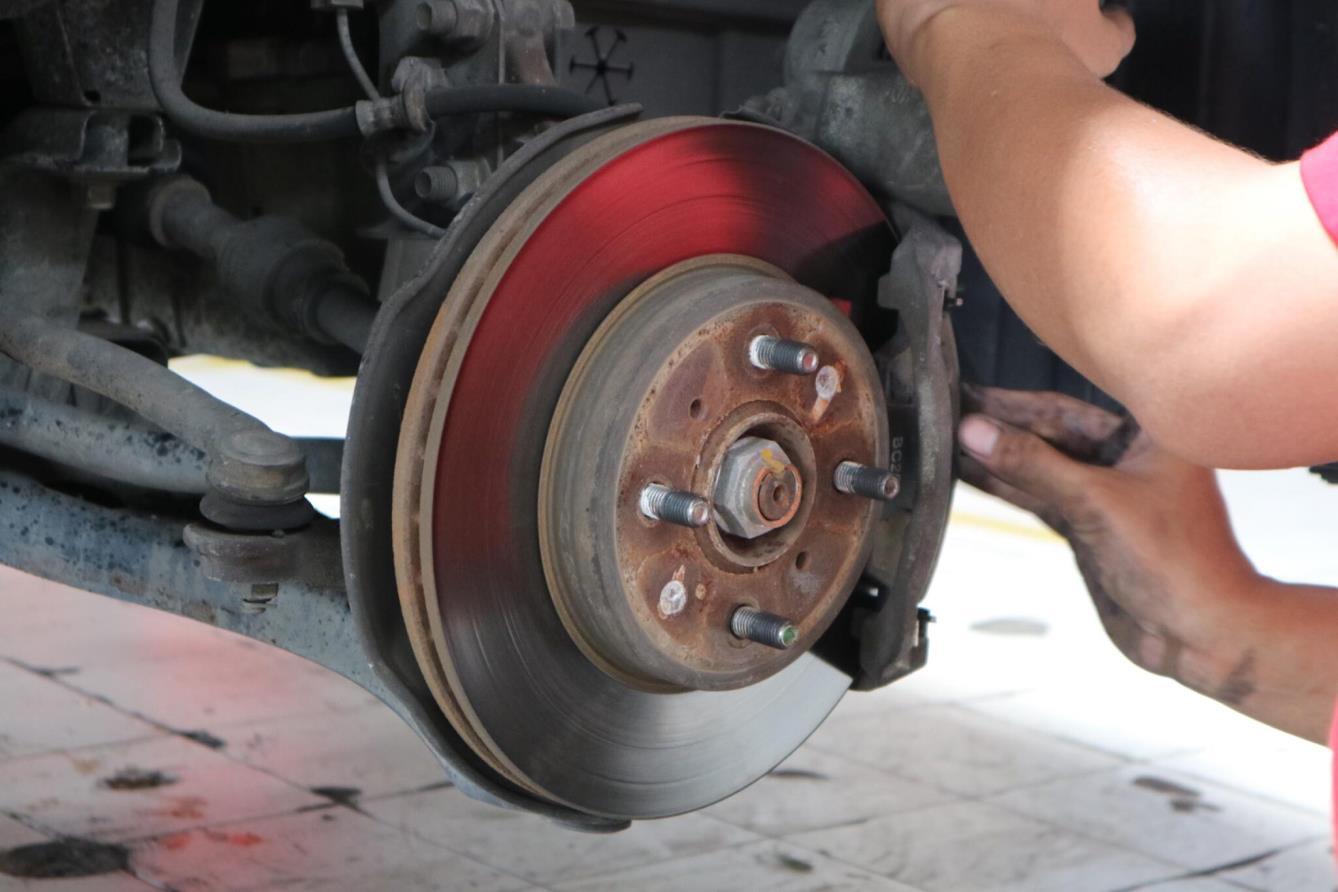WHATYOU NEED TO KNOWABOUTA “HARD BRAKE PEDAL”

At our Car Repair Shop Astoria, some customers experience a “hard” brake pedal. A hard brake pedal generally refers to a situation where the brake pedal in a vehicle feels stiff or requires more effort than usual to press. This could be due to various issues with the braking system. Here's an overview of the causes, effects, and potential solutions for a hard brake pedal.
Causes of a Hard Brake Pedal
The most common cause of a hard brake pedal is a failure in the vacuum brake booster, which assists in applying force to the brakes. The vacuum booster uses engine vacuum to make the pedal easier to press. If there's a vacuum leak or the booster itself fails, it can result in a pedal that feels harder to push.
There may also be master cylinder issues. The master cylinder is responsible for transferring hydraulic pressure to the brake system. If the seals inside the master cylinder wear out or if there's air in the brake lines, it can lead to a hard pedal feel.
Low or contaminated brake fluid can also contribute to a hard brake pedal. Inadequate fluid or air bubbles in the lines reduce the system's efficiency, leading to difficulty in braking.
Damaged Brake Lines or Leaks can also cause a “hard” pedal. A brake fluid leak in the lines can reduce the pressure in the system, which makes the pedal feel harder. If there's a major leak, it can even lead to a complete brake failure.
If your vehicle is equipped with ABS and there's a malfunction in the ABS system, it could cause issues with brake pedal feel. The pedal may feel stiff or pulsate in an unusual way.
If the brake pads or other components like the rotors are excessively worn, they may not work effectively, causing a harder brake pedal response. Extremely cold temperatures can cause brake fluid to thicken, which may lead to increased pedal resistance.
All these issues are investigated and fixed by our Auto Repair Queens shop.
Symptoms of a Hard Brake Pedal
There is a stiff pedal feel. The pedal requires more force to engage the brakes. There may also be reduced braking power where the vehicle may not slow down or stop as quickly as usual.
You may notice resistance when trying to press the brake pedal, and it may feel unresponsive or sometimes, the pedal might not be completely hard but might require more travel before the brakes engage.
Effects of a Hard Brake Pedal
With a hard brake pedal, you may have less control over the braking force, which can be dangerous in emergency situations. Applying excessive force to the pedal, especially over long distances or in stop-and-go traffic, can be tiring.
A hard brake pedal often indicates a problem with the braking system, which is vital for vehicle safety. Ignoring it could lead to brake failure.
How to Fix a Hard Brake Pedal
Our mechanics for Auto Repair Astoria shared a few points on how a professional mechanic will approach fixing a hard brake pedal.
Inspect the Vacuum Booster. Check for vacuum leaks or a failed booster. You can test this by turning off the engine, pumping the brake pedal to exhaust the vacuum, and then starting the engine. If the pedal becomes easier to press after starting the engine, the booster is working. If it remains hard, you may need to replace the booster.
Check the Master Cylinder. If there’s a problem with the master cylinder, it will need to be repaired or replaced. This usually requires professional help.
Inspect the Brake Fluid. Check the brake fluid level and condition. If the fluid is low, top it up with the correct type of fluid. If it’s contaminated or old, it may need to be flushed and replaced.
Inspect Brake Lines for Leaks. Look for any visible leaks in the brake lines and fix them promptly. Leaking fluid can significantly affect braking performance.
Replace Worn Brake Pads. If the brake pads are worn down, replace them with new ones. Worn-out pads can reduce the efficiency of the braking system, leading to a harder pedal.
Repair ABS Malfunctions. If the ABS system is malfunctioning, the ABS module or sensors may need to be repaired or replaced. This typically requires diagnostic equipment and professional help.
Check for Frozen Brake Components in cold weather. In extremely cold weather, ensure that your brake fluid is suitable for the temperature range. If the fluid is thickened, it may need to be replaced with one that is rated for colder temperatures.
Additional Considerations.
The professional mechanics for Auto Repair Astoria advise that some vehicles, especially older models or those designed for off-road use, may use manual brakes instead of power-assisted brakes. These systems naturally require more force to operate, so a hard pedal is normal. However, if the pedal is abnormally hard on a vehicle with power-assisted brakes, then it’s usually a sign of a problem.
If you're unsure about the exact cause of a hard brake pedal, a professional mechanic can use diagnostic tools to check for vacuum leaks, brake fluid pressure issues, and ABS malfunctions. Our shop for Auto Repair Queens helps our customers regularly with all sorts of brake issues. If you’re experiencing a hard brake pedal, it’s important to address the issue promptly, as brake failure or reduced braking efficiency can be very dangerous.
